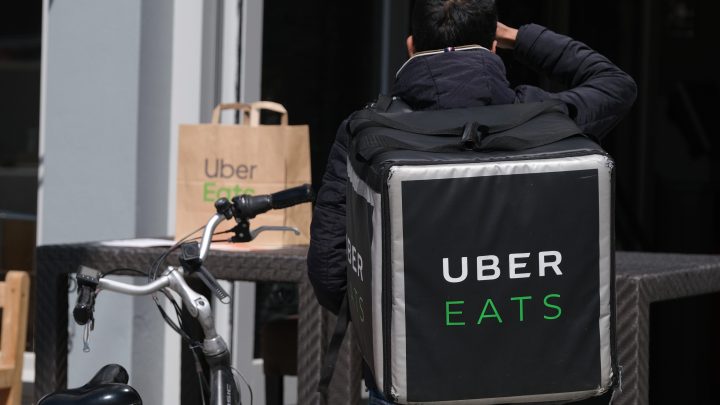
Labor Department wants to get more gig workers on company payrolls
Labor Department wants to get more gig workers on company payrolls

The Department of Labor has released new rules for determining which workers are employees of a company and entitled to the wage and overtime protections that come with that status.
Or, more specifically, it’s reinstating the old rules after the previous administration made it easier to classify workers as independent contractors.
Labor rights proponents are happy with this reversal. Business leaders, especially in parts of the tech sector, are not.
Ride-hailing and delivery apps have changed the conversation around who counts as an independent contractor and whether companies are exploiting that distinction, said Veena Dubal, a law professor at the University of California, Irvine, School of Law.
“The primary business innovation of these on-demand companies has been to say, ‘We are connecting consumers with workers. And we’re just intermediaries,'” she said.
And that each driver is operating an independent small business.
“I think that kind of doesn’t really pass the laugh test,” said Terri Gerstein, director of the Wagner Labor Initiative at New York University. She said those theoretical business owners have pretty limited control.
“You know, most importantly, they’re not allowed to set their own rates,” she said.
The new/old federal rules will take that into account, along with how financially dependent the worker is on the company and whether their work is integral to its business model.
Uber, Lyft and DoorDash aren’t sweating it. All said Tuesday they won’t change their operations based on the new standard.
“It only will come into play if a worker is claiming a violation,” said Sam Sanders with the Economic Policy Institute. She said we can probably aIso expect lawsuits from those big tech companies.
But it’s not just the so-called gig economy that’s subject to these rules.
“It’s, you know, construction workers, nail salon workers, janitors, lots of other people who are vulnerable to being misclassified,” Sanders said.
And who now stand a better chance of getting the pay and protections other workers get.
There’s a lot happening in the world. Through it all, Marketplace is here for you.
You rely on Marketplace to break down the world’s events and tell you how it affects you in a fact-based, approachable way. We rely on your financial support to keep making that possible.
Your donation today powers the independent journalism that you rely on. For just $5/month, you can help sustain Marketplace so we can keep reporting on the things that matter to you.











